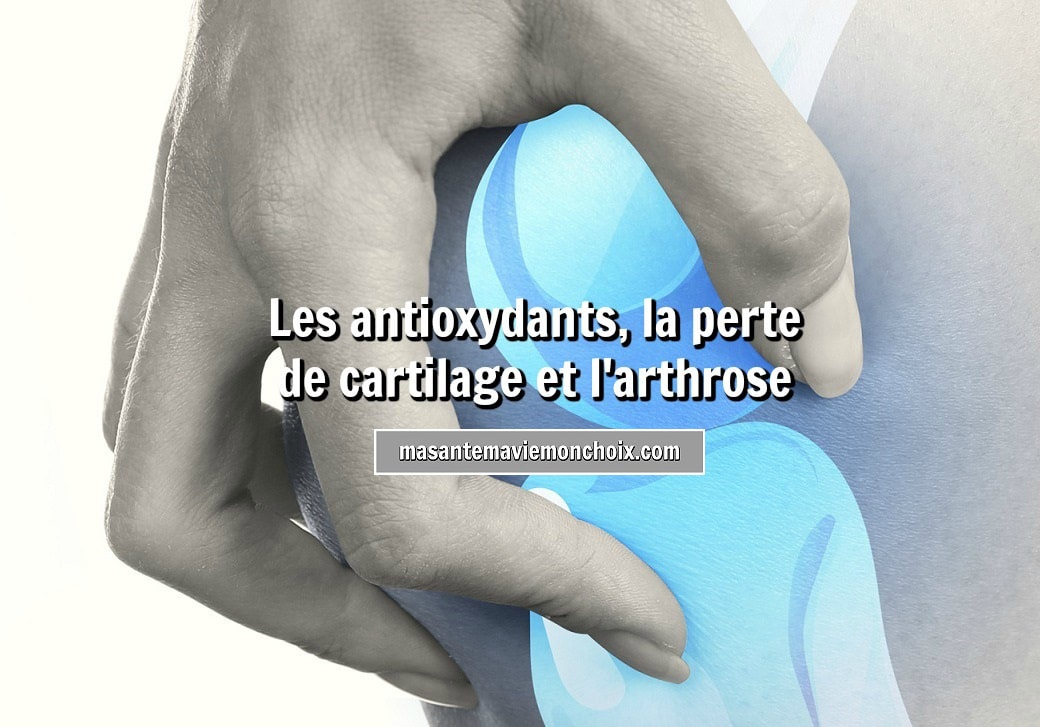|
Une forte consommation de micronutriments antioxydants, en particulier la vitamine C, peut réduire le risque de perte de cartilage et de progression de la maladie chez les personnes souffrant d'arthrose. RÉFÉRENCE:
Veuillez lire l'article complet (en anglais seulement) : Abstract OBJECTIVE: Cumulative damage to tissues, mediated by reactive oxygen species, has been implicated as a pathway that leads to many of the degenerative changes associated with aging. We hypothesized that increased intake of antioxidant micronutrients might be associated with decreased rates of osteoarthritis (OA) in the knees, a common age-related disorder. METHODS: Participants in the Framingham Osteoarthritis Cohort Study underwent knee evaluations by radiography at examinations 18 (1983-1985) and 22 (1992-1993). Usual dietary intake was assessed using the Food Frequency Questionnaire, administered at examination 20 (1988-1989). Knees without OA at baseline (Kellgren and Lawrence [K&L] grade < or = 1) were classified as having incident OA if they had a K&L grade > or = 2 at followup. Knees with OA at baseline were classified as having progressive OA if their score increased by > or = 1 at followup. Knees were also classified as having cartilage loss or osteophyte growth if their maximal joint space narrowing or osteophyte growth score increased by > or = 1 (range 0-3). The association of vitamin C, beta carotene, and vitamin E intake, ranked in sex-specific tertiles, with incidence and progression of OA was compared with that of a panel of nonantioxidant vitamins, Bl, B6, niacin, and folate, using logistic regression and generalized estimation equations to adjust for correlation between fellow knees. The lowest tertile for each dietary exposure was used as the referent category. Odds ratios (OR) were adjusted for age, sex, body mass index, weight change, knee injury, physical activity, energy intake, and health status. RESULTS: Six hundred forty participants received complete assessments. Incident and progressive OA occurred in 81 and 68 knees, respectively. We found no significant association of incident OA with any nutrient. A 3-fold reduction in risk of OA progression was found for both the middle tertile (adjusted OR = 0.3, 95% confidence interval [95% CI] 0.1-0.8) and highest tertile (adjusted OR = 0.3, 95% CI 0.1-0.6) of vitamin C intake. This related predominantly to a reduced risk of cartilage loss (adjusted OR = 0.3, 95% CI 0.1-0.8). Those with high vitamin C intake also had a reduced risk of developing knee pain (adjusted OR = 0.3, 95% CI 0.1-0.8). A reduction in risk of OA progression was seen for beta carotene (adjusted OR = 0.4, 95% CI 0.2-0.9) and vitamin E intake (adjusted OR = 0.7, 95% CI 0.3-1.6), but was less consistent. No significant associations were observed for the nonantioxidant nutrients. CONCLUSION: High intake of antioxidant micronutrients, especially vitamin C, may reduce the risk of cartilage loss and disease progression in people with OA. We found no effect of antioxidant nutrients on incident OA. These preliminary findings warrant confirmation. Arthritis Rheum. 1996 Apr;39(4):648-56. Do antioxidant micronutrients protect against the development and progression of knee osteoarthritis? McAlindon TE1, Jacques P, Zhang Y, Hannan MT, Aliabadi P, Weissman B, Rush D, Levy D, Felson DT. Les commentaires sont fermés.
|
AVIS IMPORTANT:
Veuillez prendre connaissance de cet avertissement et rappelez-vous que le site www.drsuciu.com ne saurait remplacer une consultation avec vos professionnels de la santé. L'information fournie sur le site web www.drsuciu.com est d'ordre général. Avant de prendre toute décision de nature médicale ou si vous avez des questions concernant votre état de santé personnel, adressez-vous à un professionnel de la santé qualifiée. D'aucune manière ces points de vue, commentaires et renseignements ne constituent une recommandation de traitement (préventif ou curatif), une ordonnance ou un diagnostic, ni ne doivent être considérés comme tels. Archives
Août 2017
|



 Flux RSS
Flux RSS